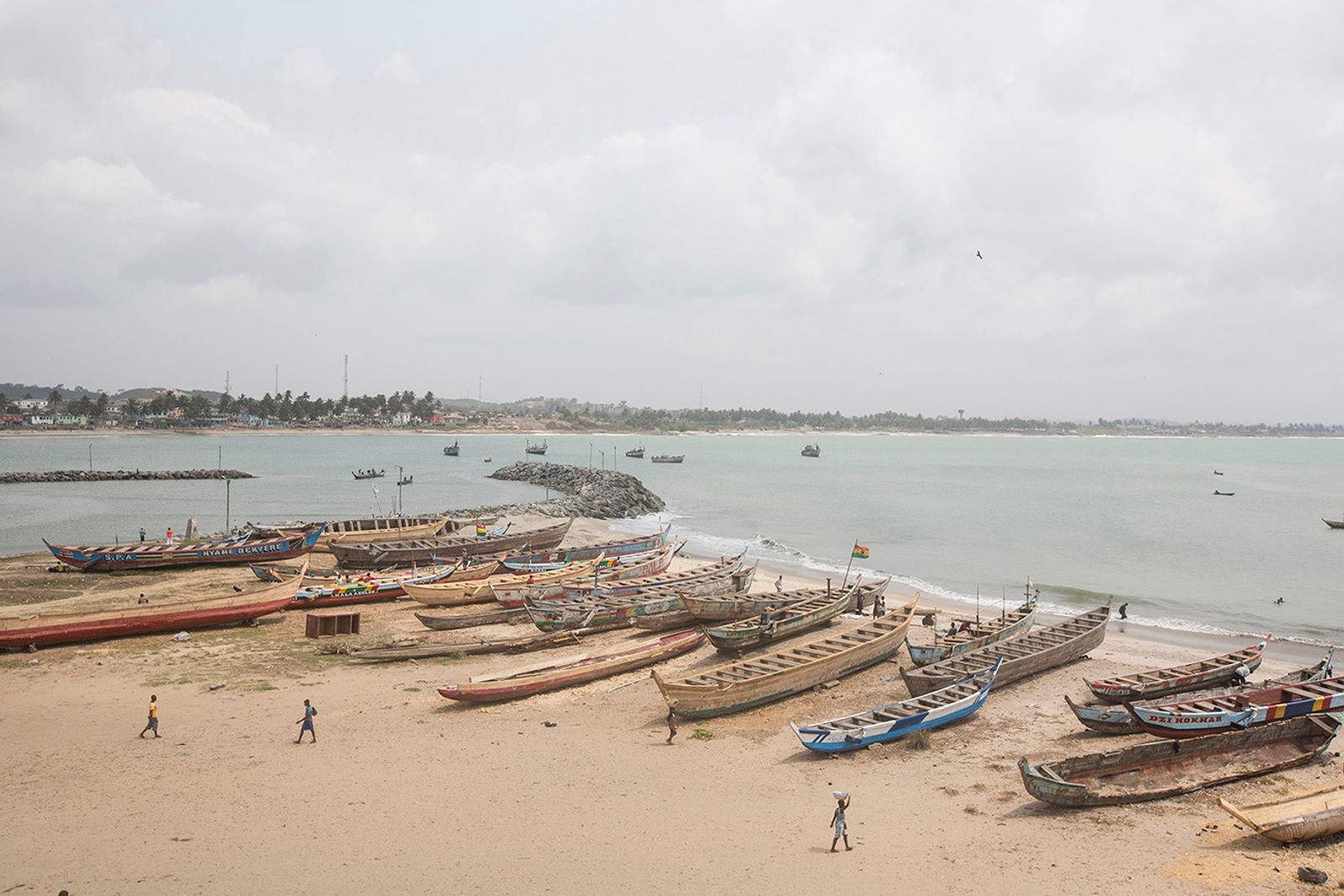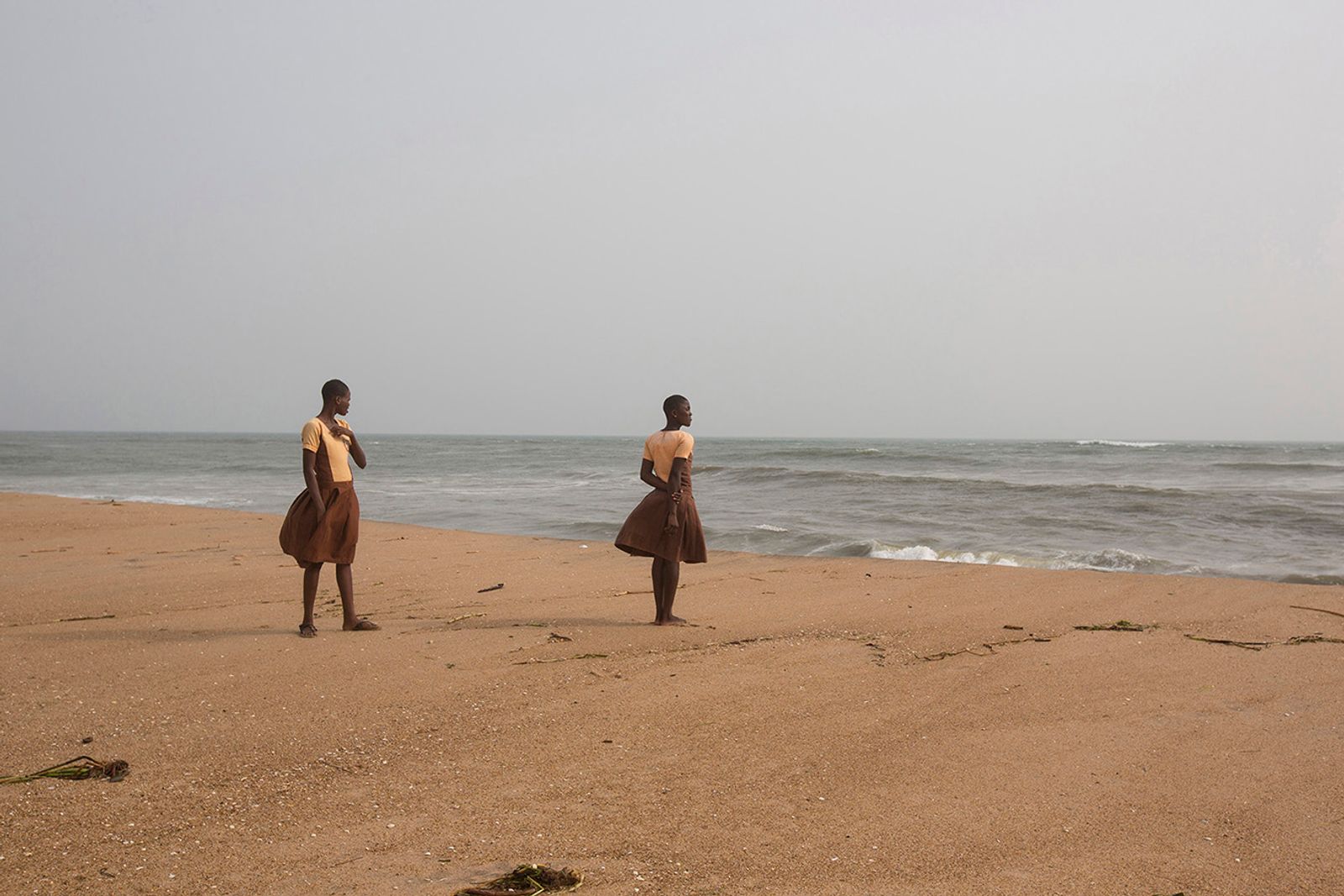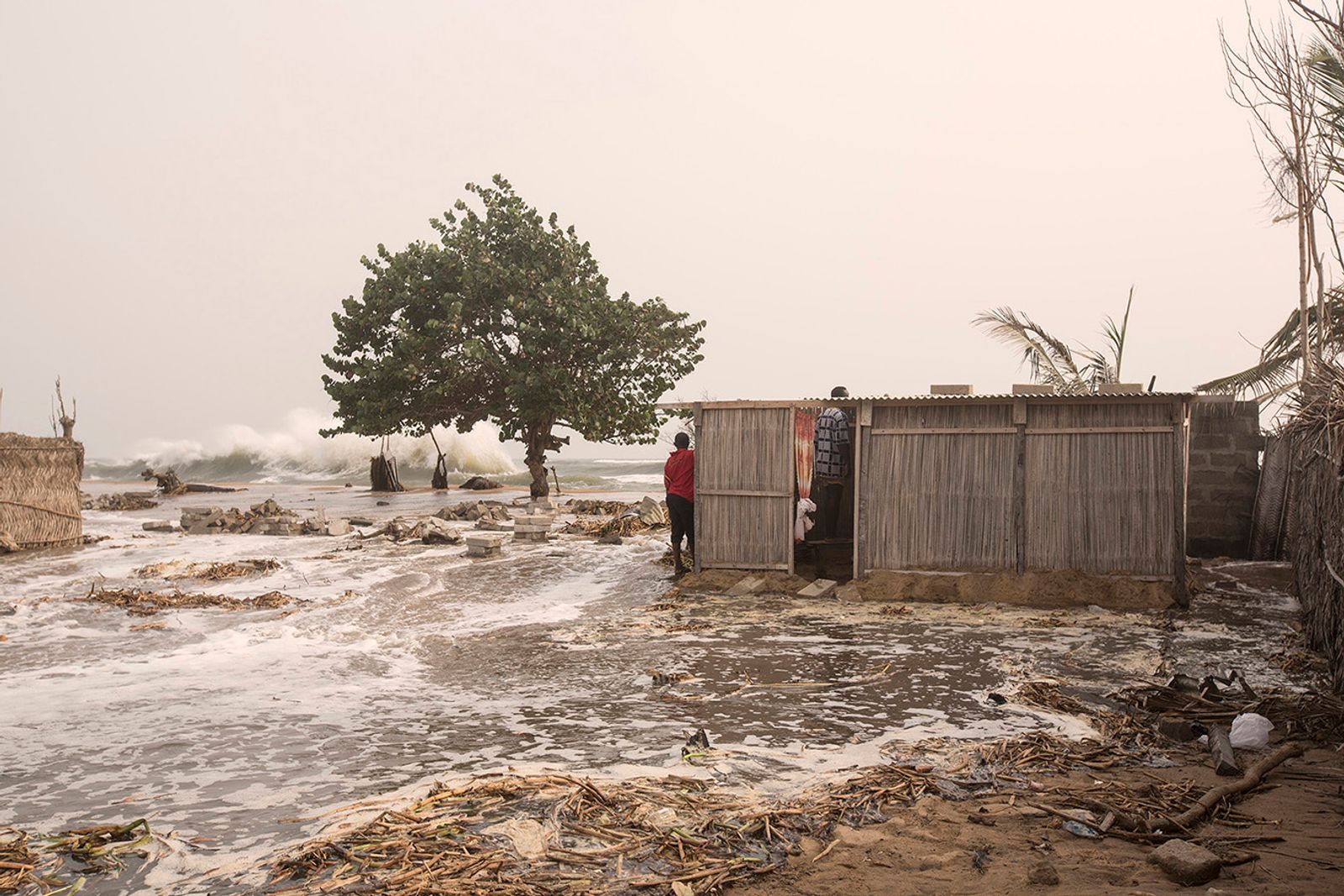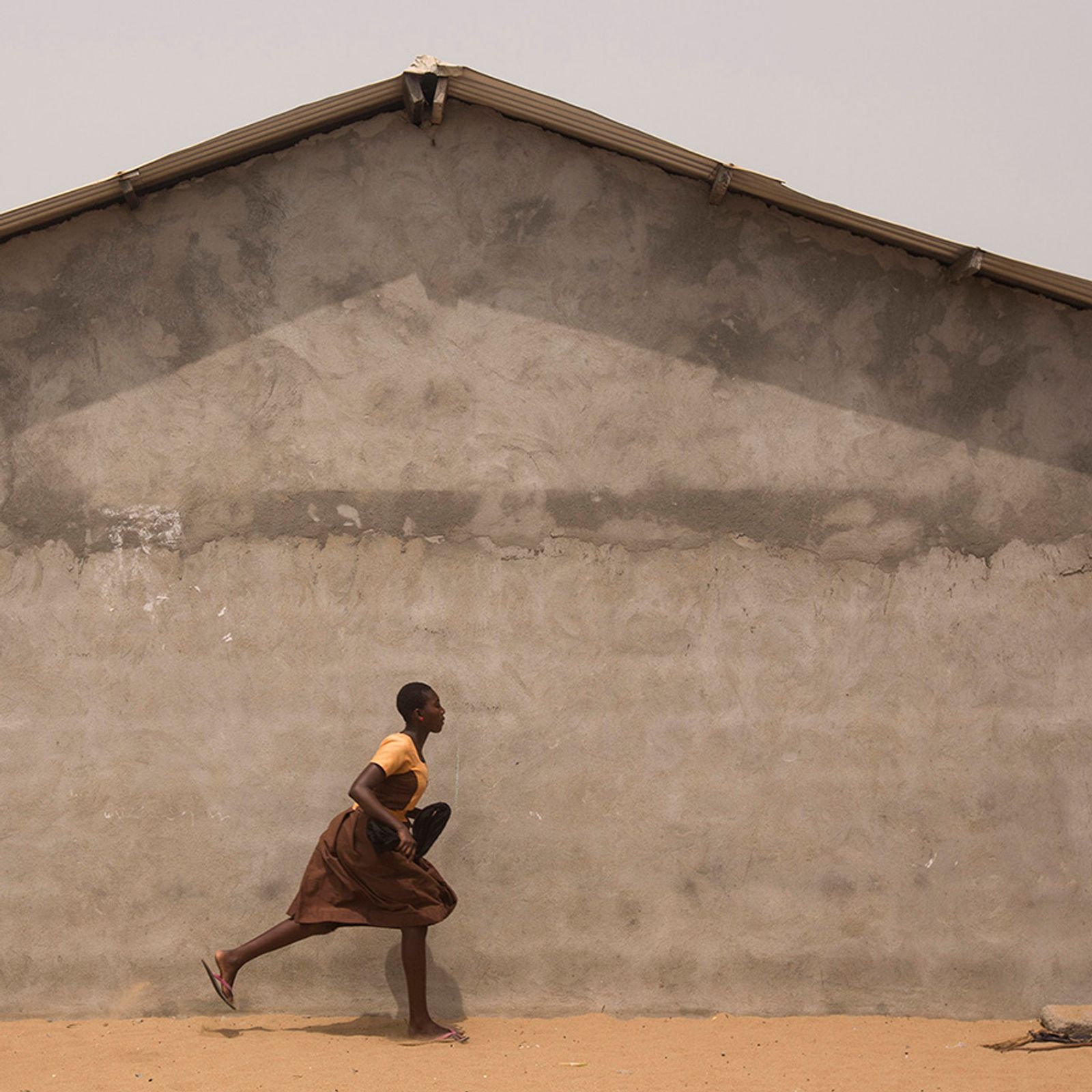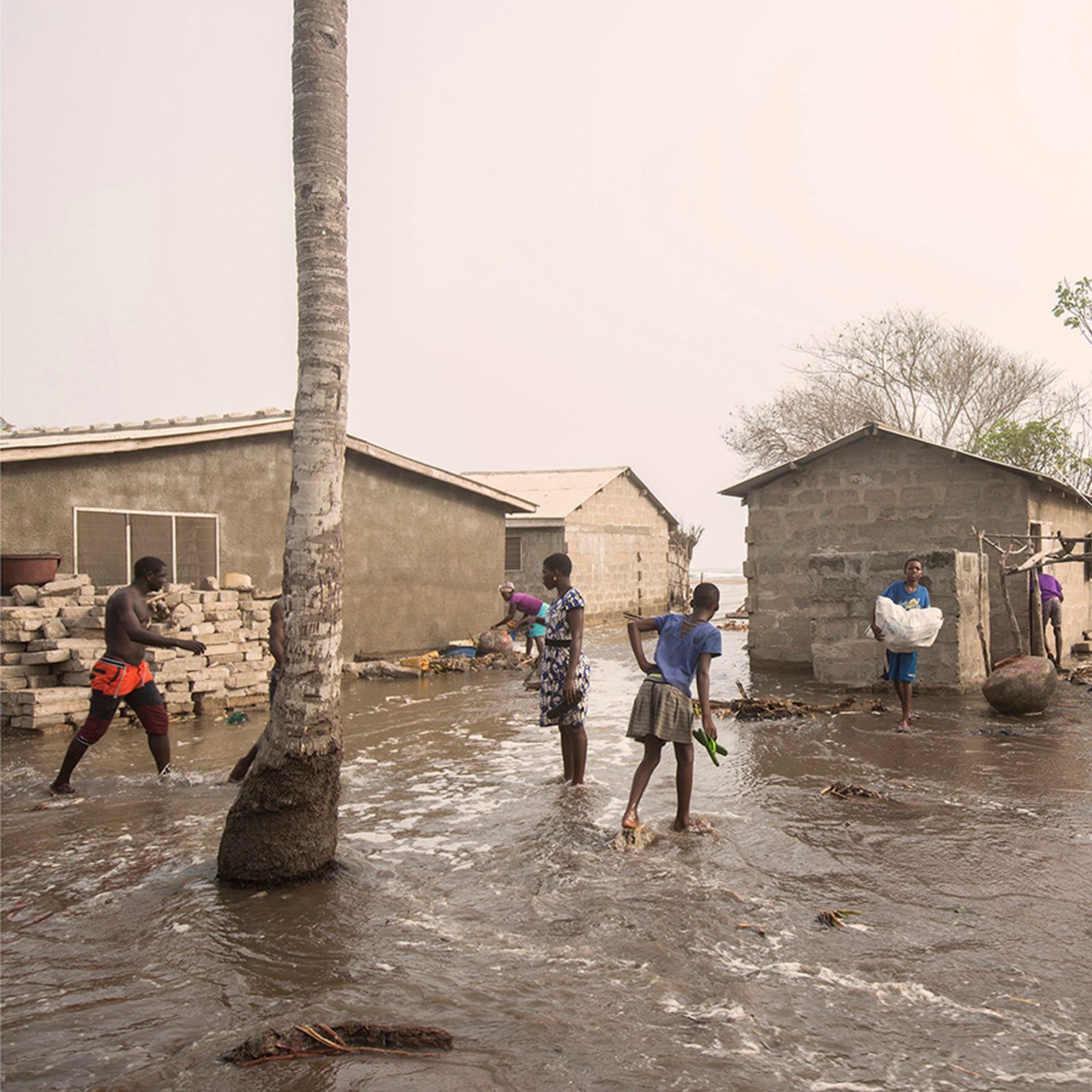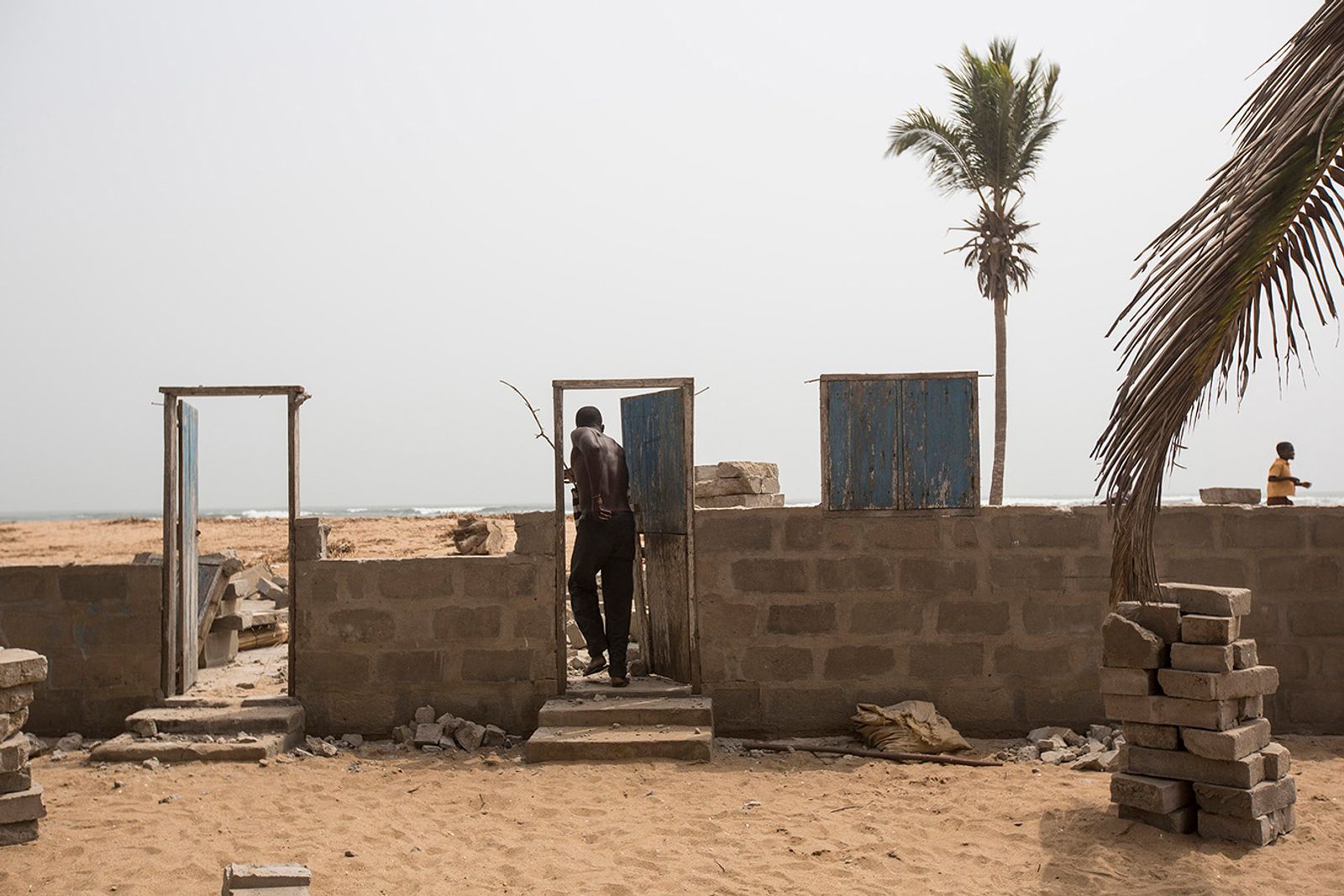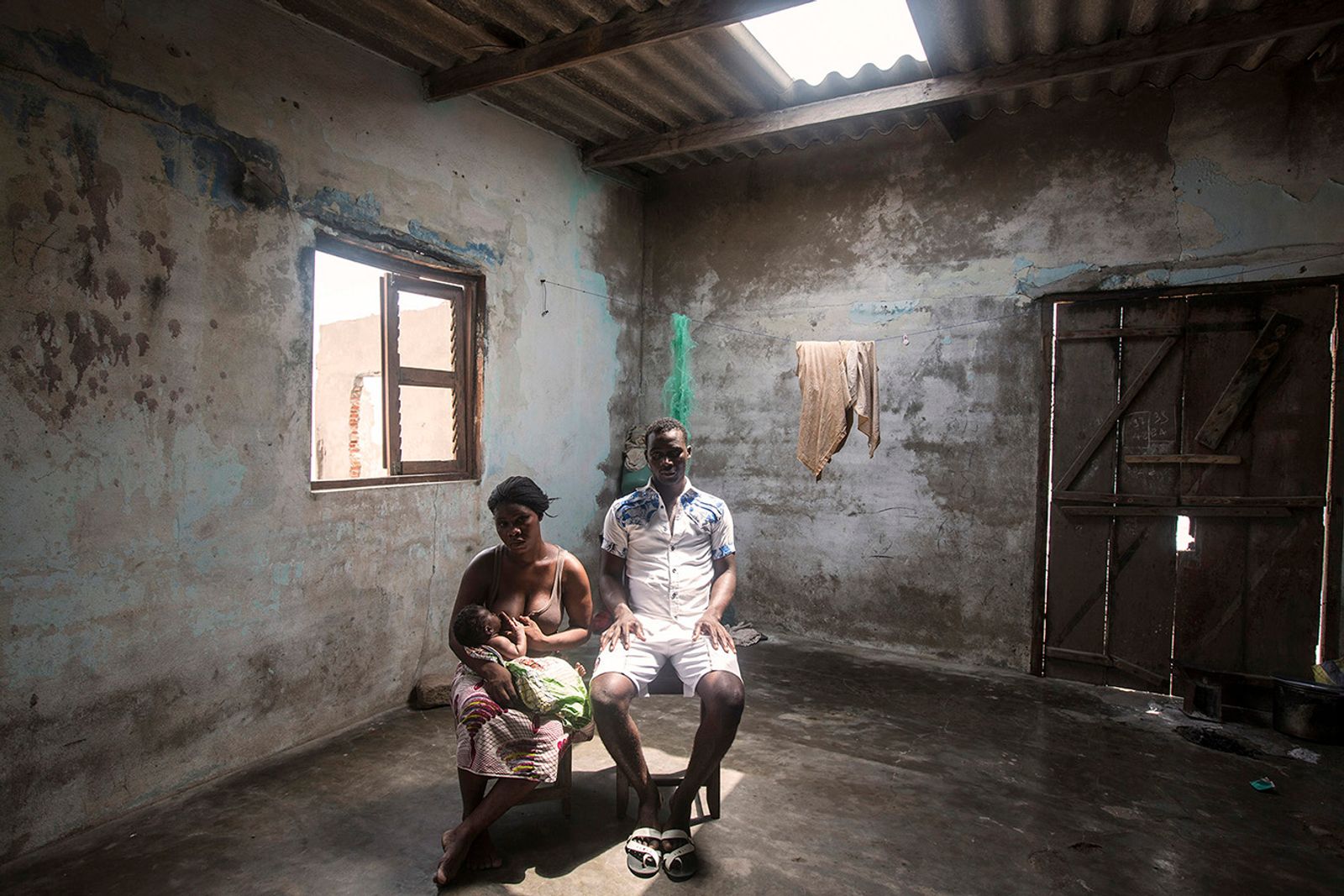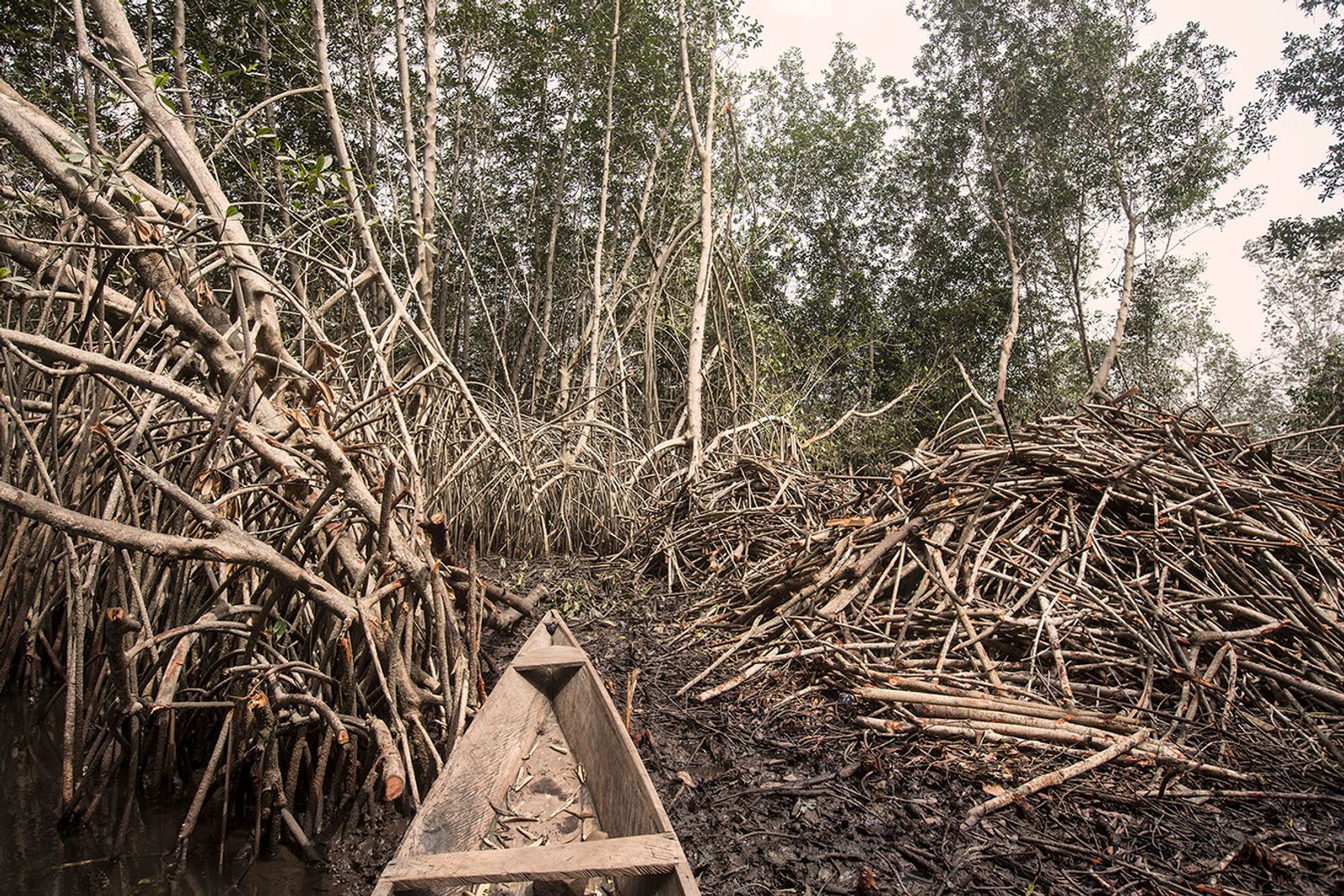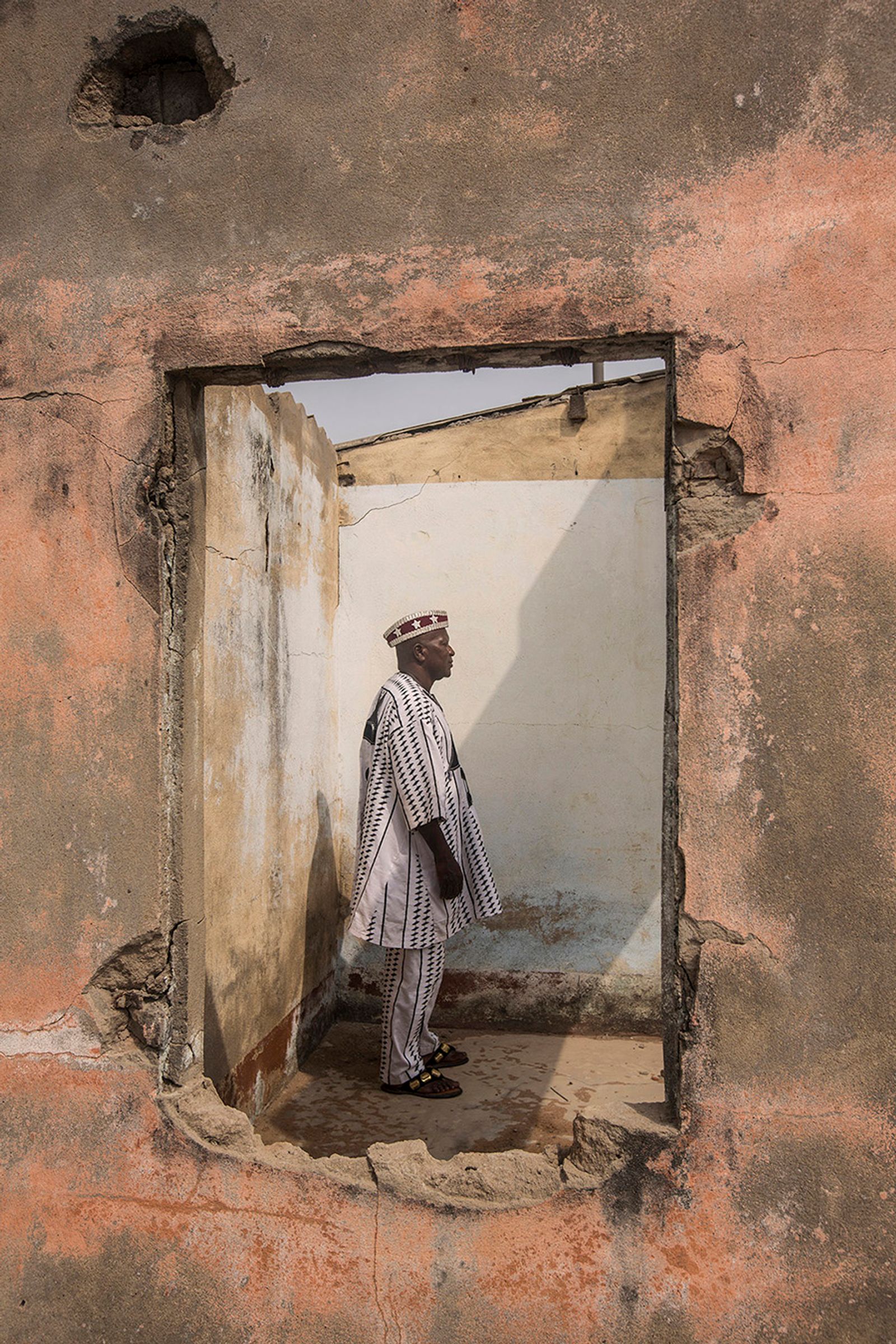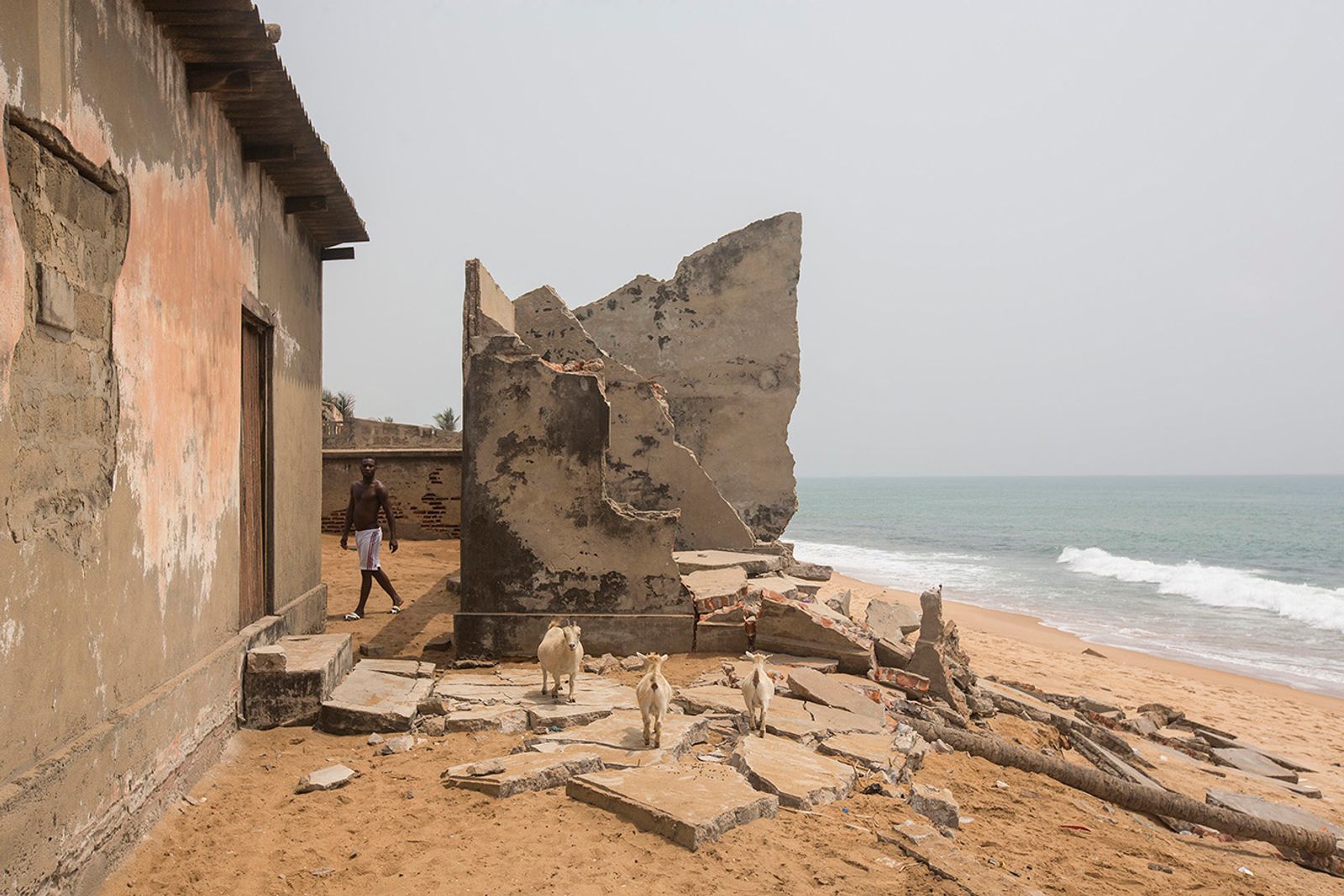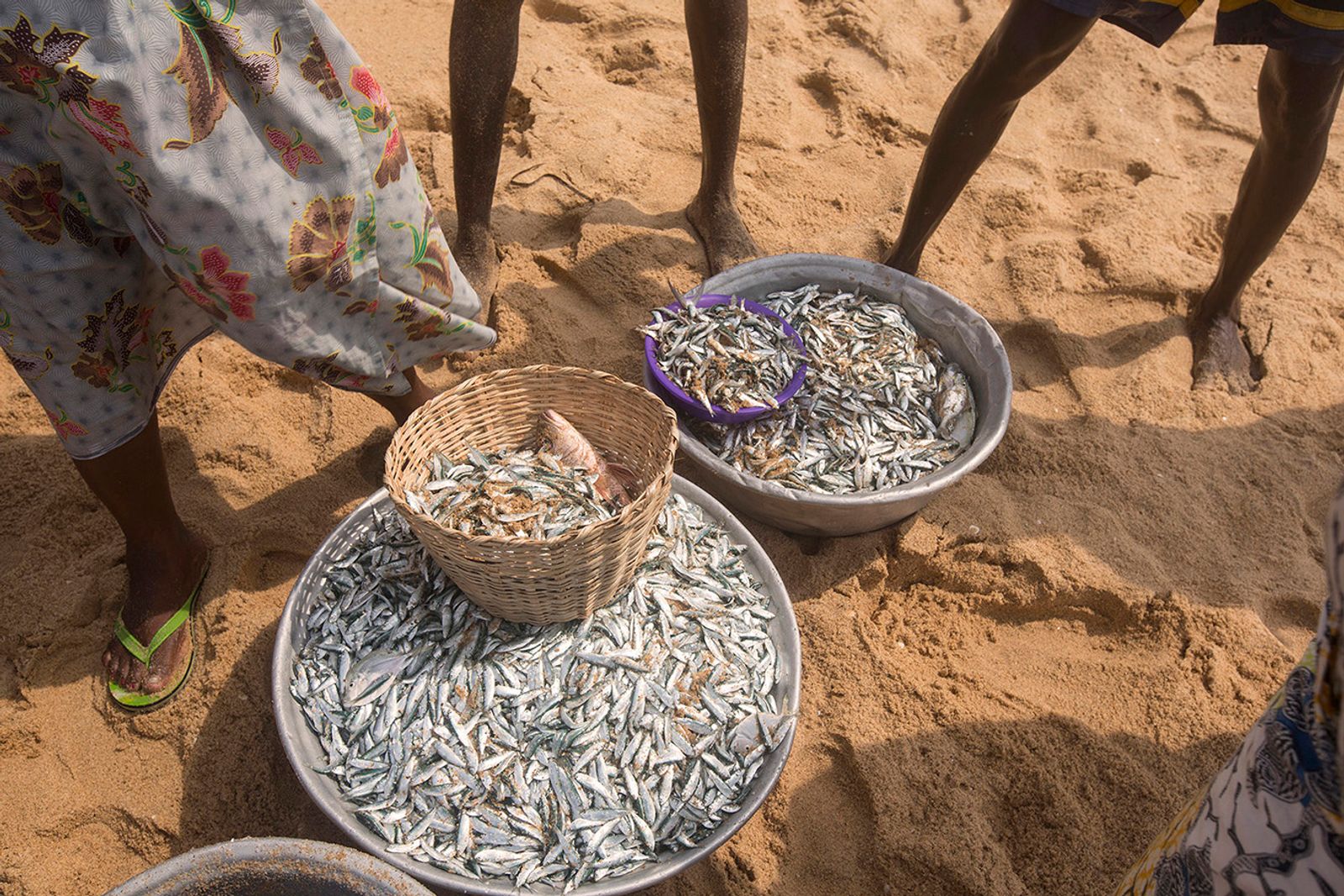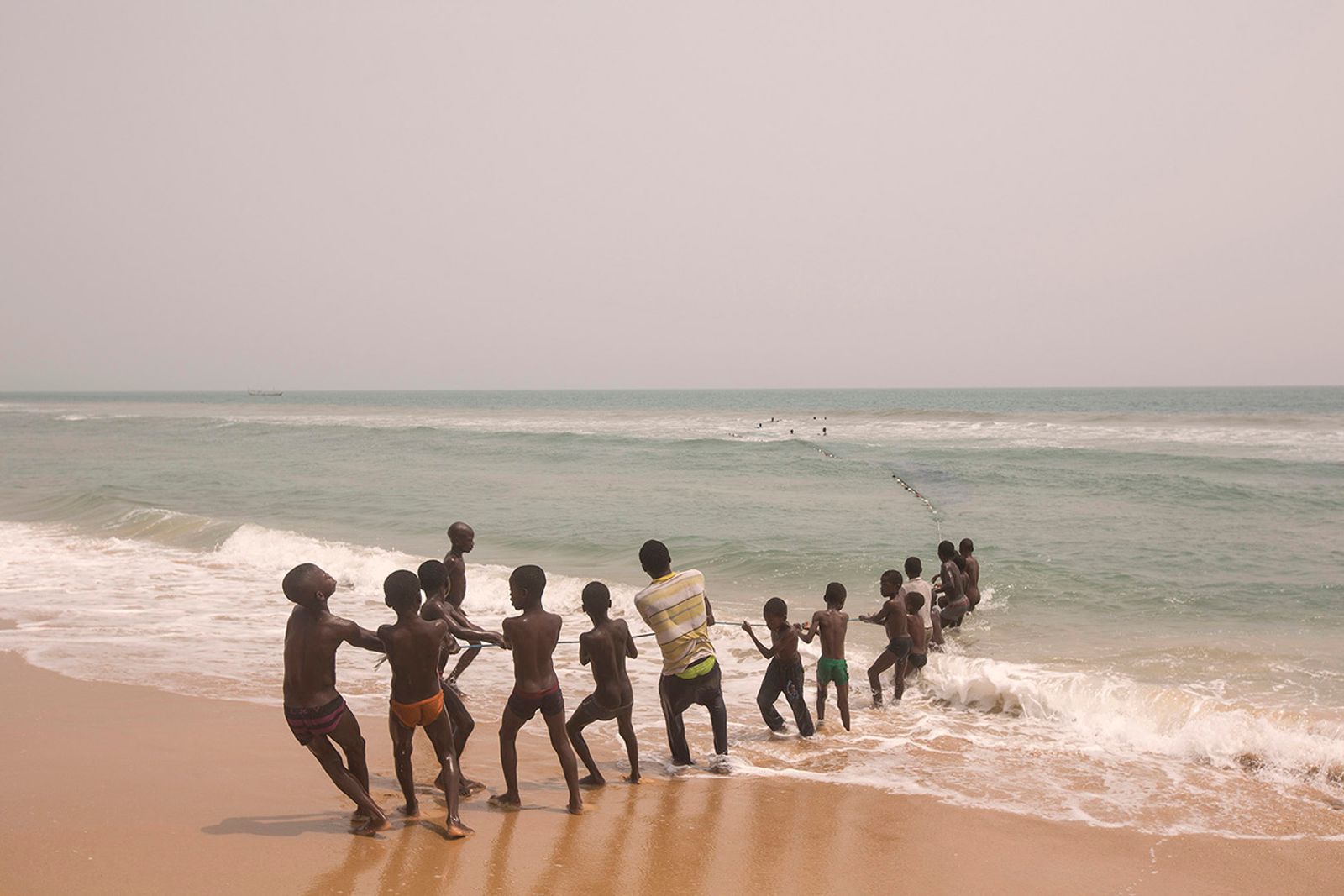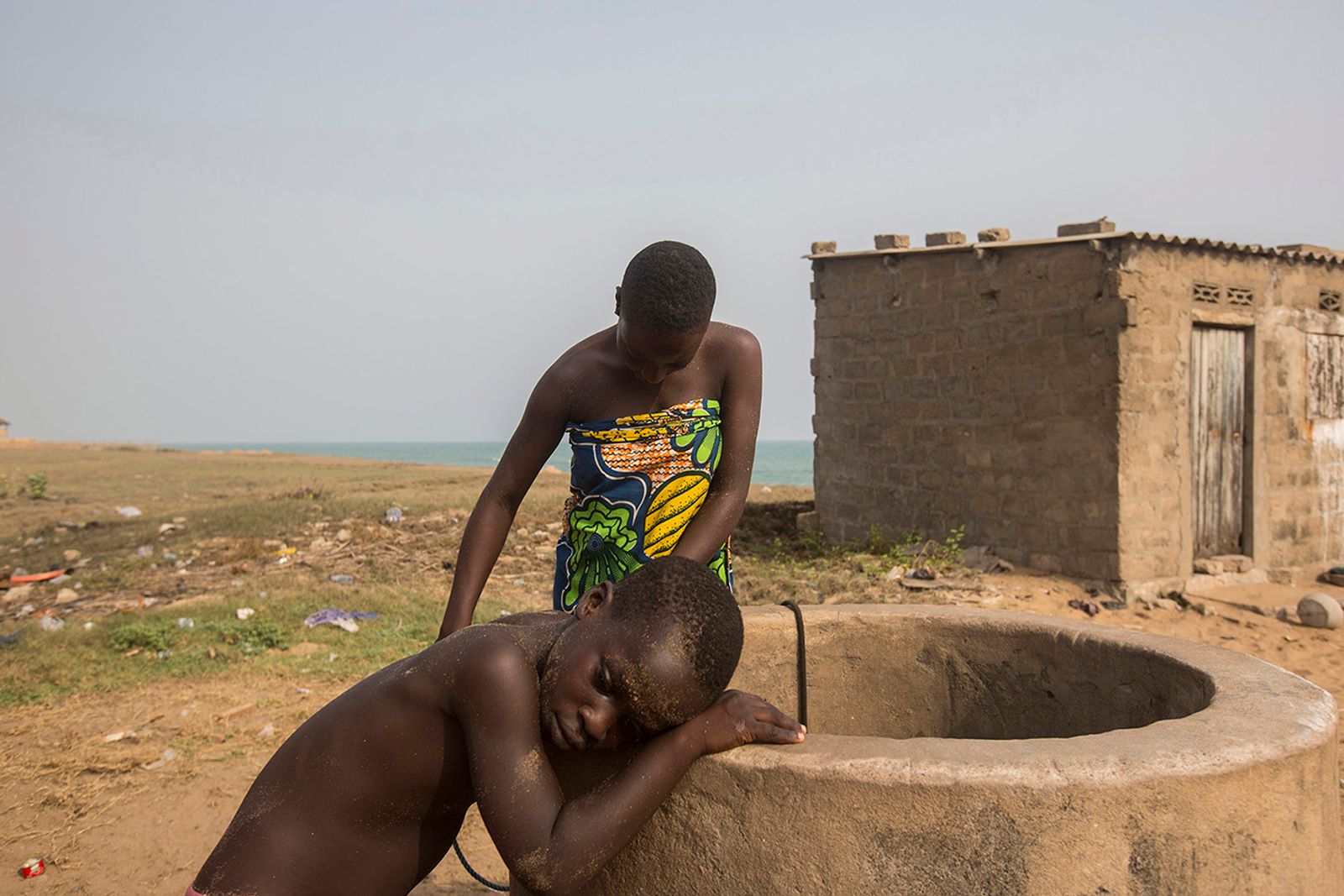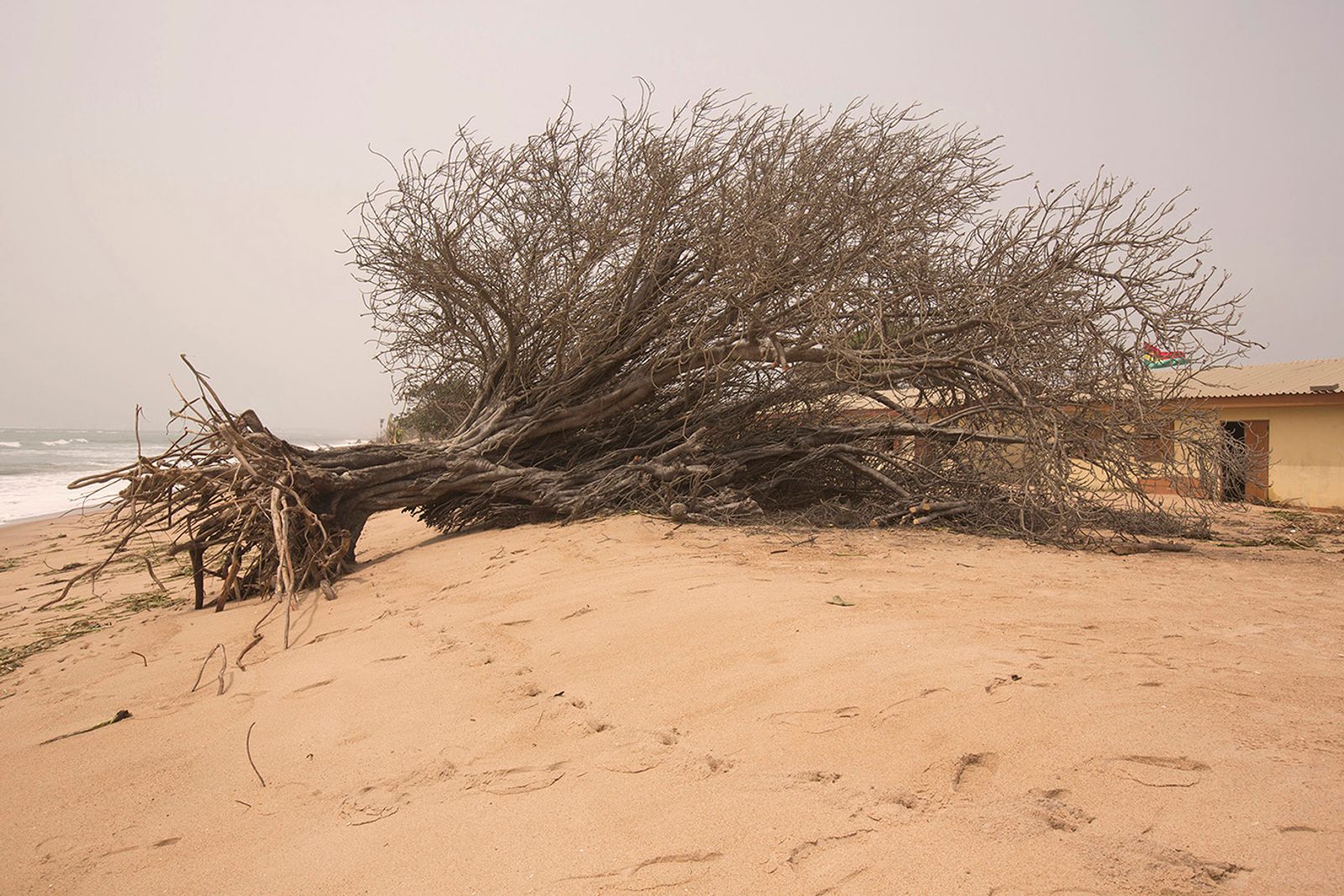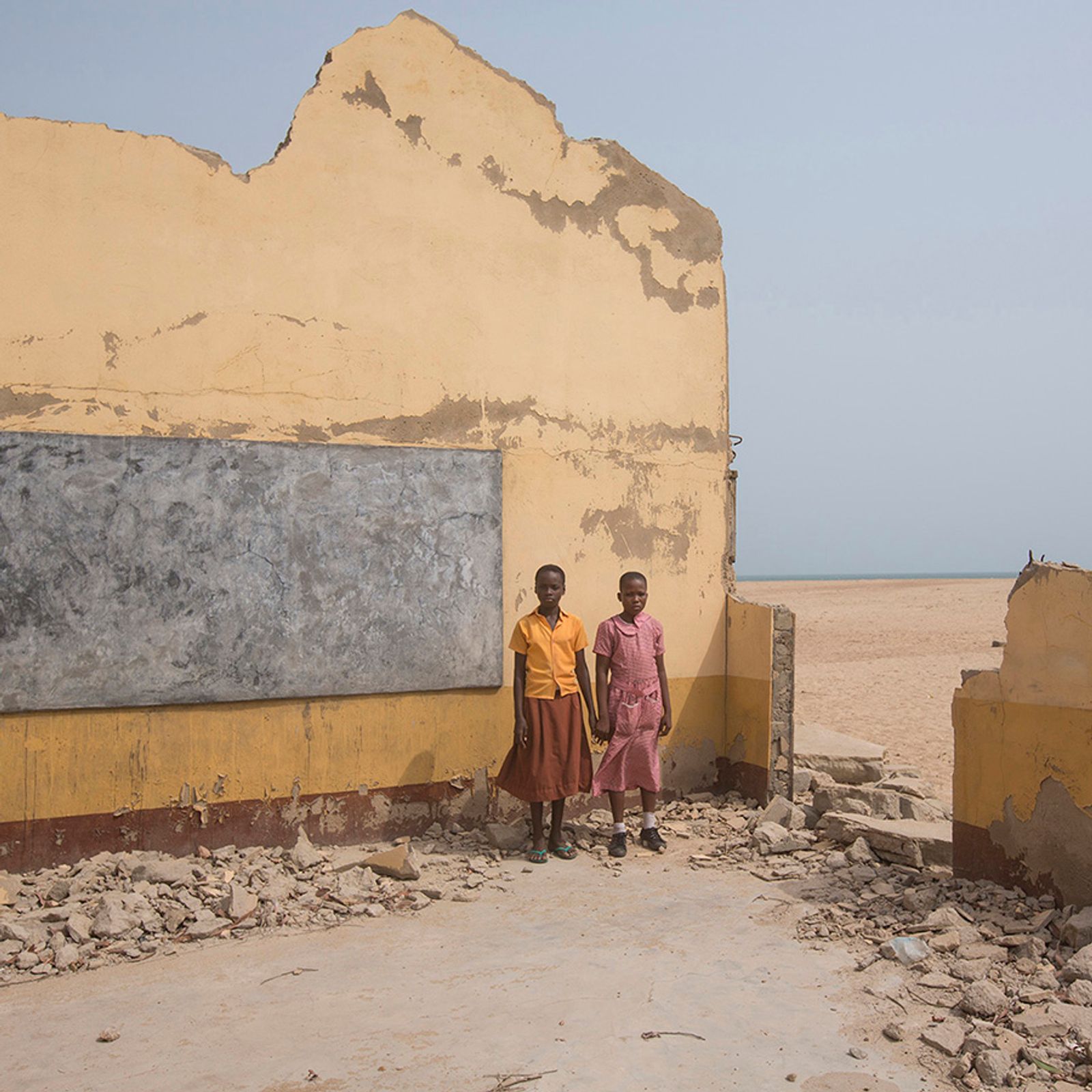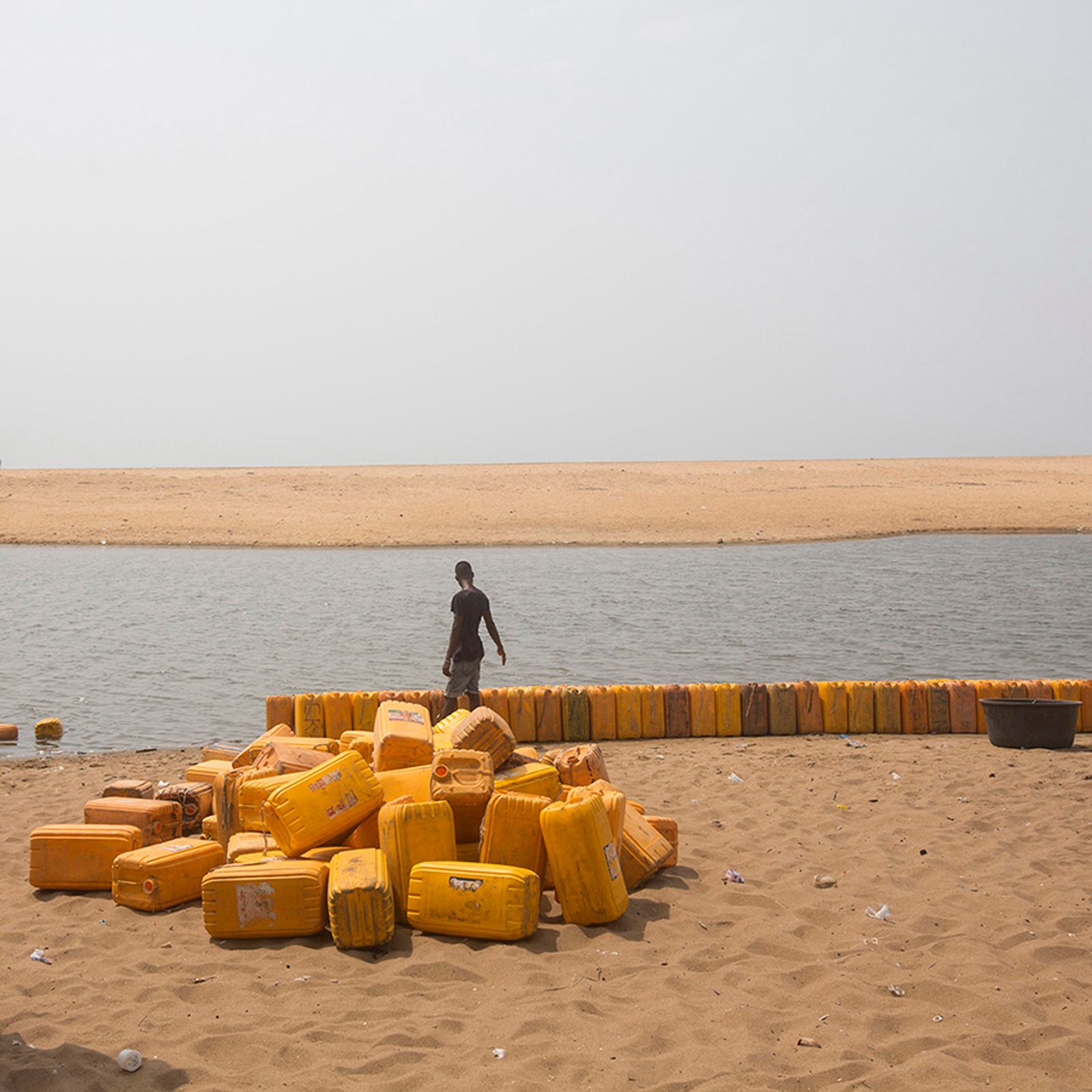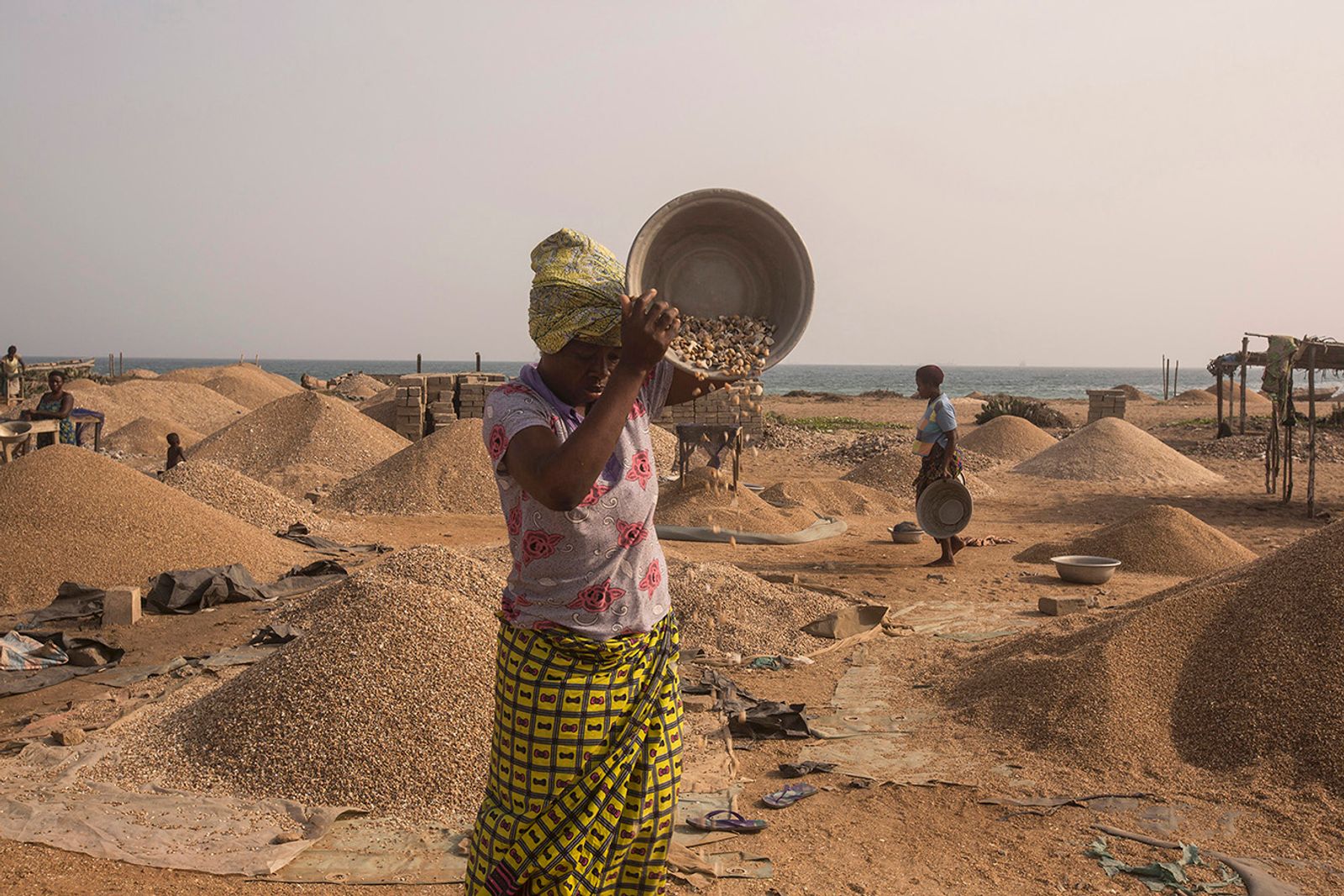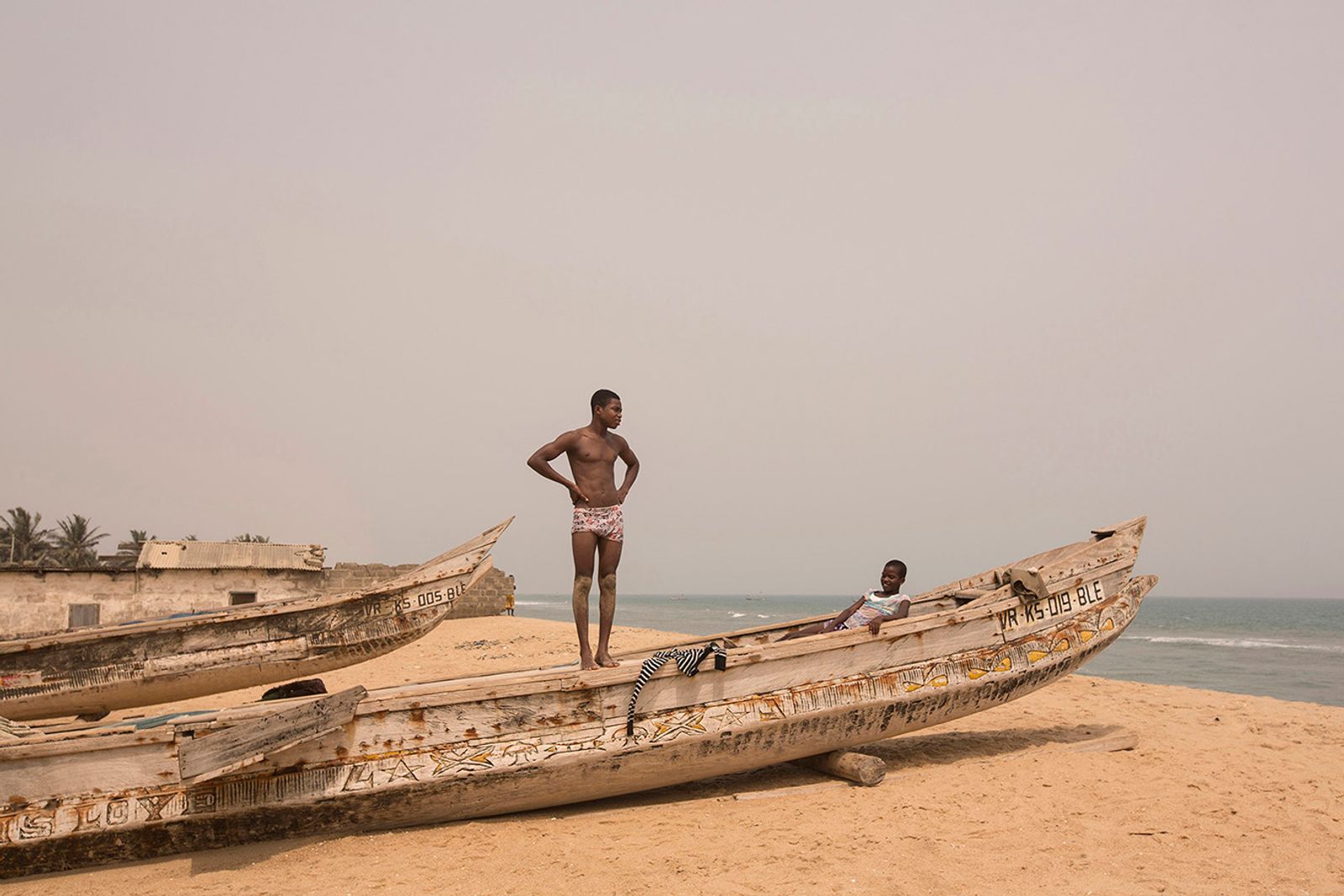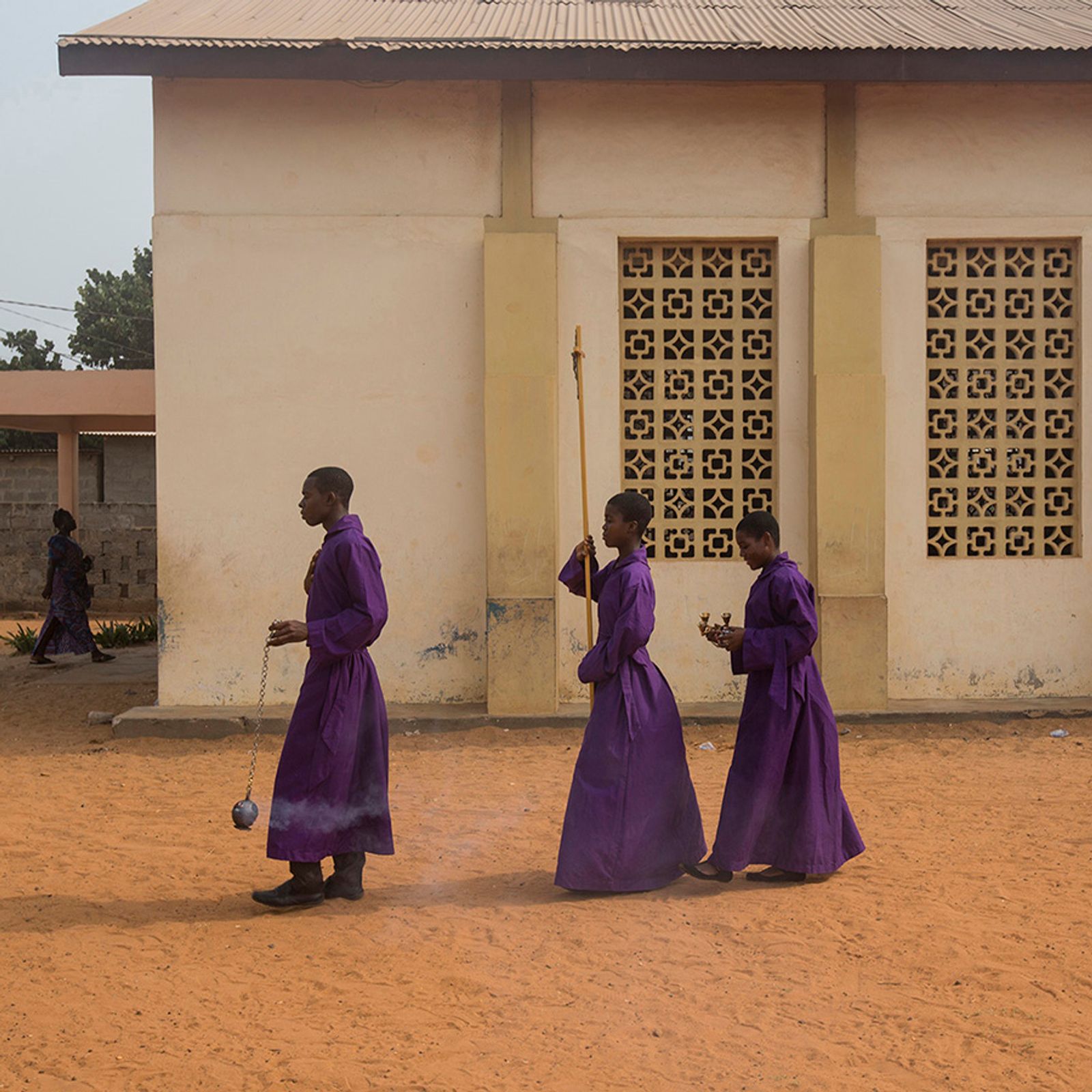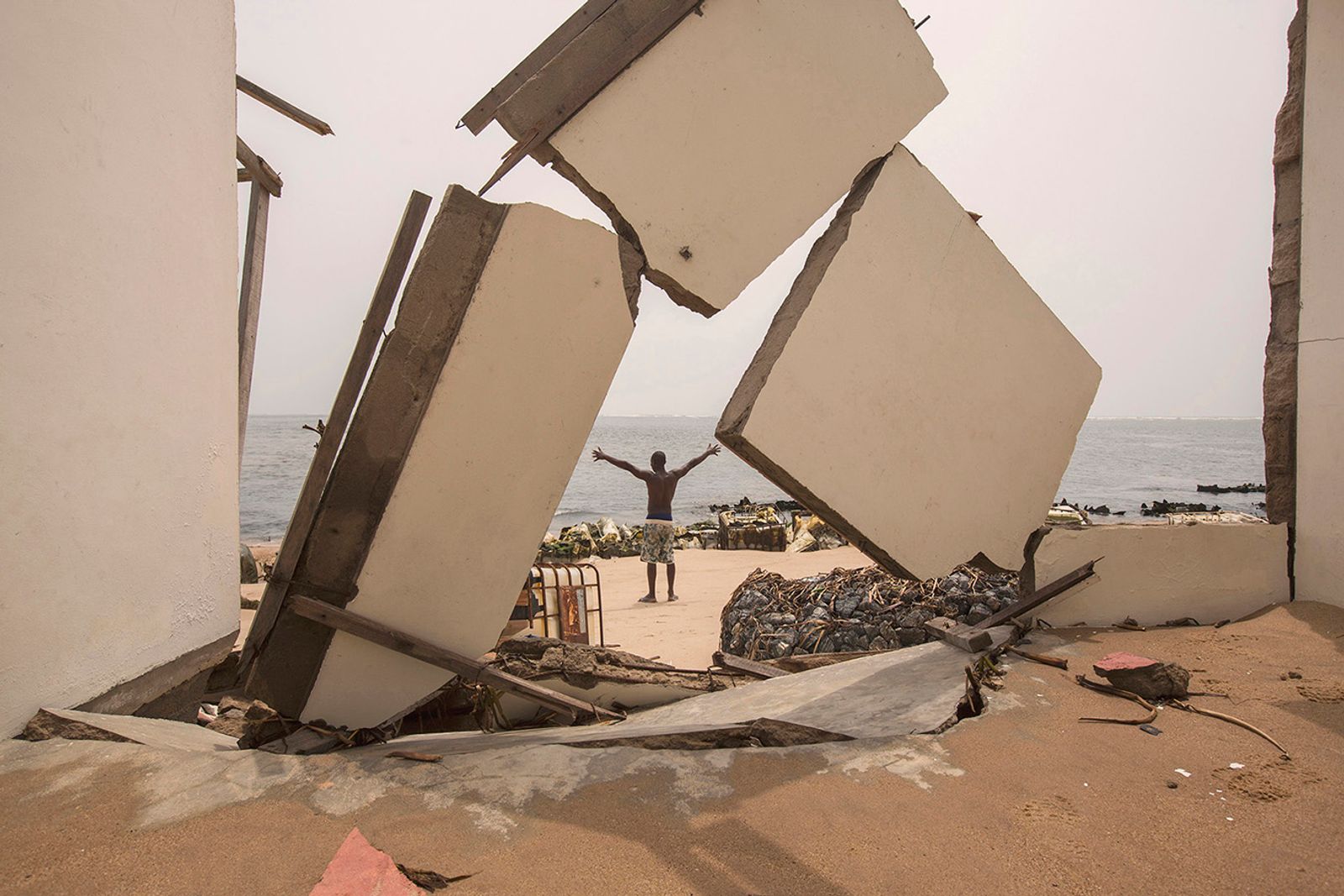Ocean rage
-
Dates2016 - Ongoing
-
Author
- Topics Contemporary Issues, Social Issues
Shot in Ghana and Togo, the series documents the consequences of global warming and sea level rise on more than 7,000 kilometers of West African coastline, where massive erosion is disrupting the lives of tens of millions of people and pushing a traditional way of life on the brink of extinction.
“Ocean Rage” is an ongoing project aiming at documenting the devastating natural and social effects of climate change on the coastal communities of West Africa.
As a consequence of global warming and sea level rise, more than 7,000 kms of coastline from Mauritania to Cameroon are eroding at a pace of up to 36 metres per year, disrupting the lives of tens of millions of people in thirteen countries. While local governments scramble to salvage big cities and industrial complexes, thousands of villages are being left out in the cold, pushing a thousands-year-old way of life on the brink of extinction.
Rising temperatures have pushed fish stocks away from the coasts, while erosion and salinization reduce arable land and contaminate freshwater reserves. Deprived of their means of survival, communities lose their most resourceful people to migration. As rampant unemployment drives drugs and alcohol consumption, the only profitable activities left are those controlled by criminal syndicates involved in fuel smuggling and illegal sand mining.
Once home to thriving fishing settlements, the coastline of Ghana and Togo is now a sequence of crumbling buildings and ghost towns which have been swallowed by the ocean in little more than 20 years. As climate change wipes away houses, churches and plantations, it also destroys the livelihood, cultural heritage and social fabric of entire communities, with dangerous consequences for the future of the whole continent.
The submitted series, shot along the coasts of Ghana, Togo and Benin, is the first chapter of a project spanning thirteen African countries. The next one will bring me to Senegal, Gambia and Guinea-Bissau where, by 2100, 70 percent of the coastal population is projected to suffer from sea level rise, experiencing chronic flooding, increased field salinization and the spread of waterborne diseases such as cholera and malaria.
By mapping the destruction in a region where climate change has received very limited coverage, I want to show how the problems haunting West Africa are the harbinger of what mankind will experience if we won't be able to find a viable balance between progress, social inequality and environmental conservation. In a world where progress is synonymous with urbanization and consumerism, traditional communities are being sacrificed on the altar of modernity, even when the increasing pressure on natural resources should prompt an overhaul of our priorities.
